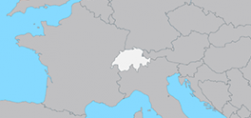NATO assistance to physical security and stockpile management, destruction, demilitarisation and disposal and defence reform in Mauritania II (Mauritania II Phase 1+)
As part of its second Mauritania Partneship for Peace (PfP) and Mediterranean Dialogue (MD) trust fund project, NATO conducted several activities in the field of disposal of military ordnance and assisted in gender training courses in Kenya and Spain. Mauritania specifically sought assistance to support the disposal of military assets such as, MANPADS, unserviceable and obsolete stockpiled conventional ammunition (CA) as well as decommissioned military ordnance and engineer vehicles. Mauritania also requested support to enhance ammunition physical security and stockpile management and to support the defence reform activities. NATO Support and Procurement Agency (NSPA) is currently supporting the Mauritanian National Army (MNA) in this field by implementing the following activities:
(I) The destruction, demilitarisation and disposal (D3) of military assets. This included the disposal of surplus, unserviceable and obsolete stockpiled conventional ammunition (CA) and/or MANPADS and/or decommissioned military ordnance and engineer vehicles. The goal of this activity was to reduce the risk to the population as well as reduces proliferation risk by removing these items from potential circulation.
(II) The improvement of MNA ammunition Physical Security and Stockpile Management (PSSM) by providing its personnel with the capability to manage and control the inventory with a view to reduce risk to the population and reduce proliferation risk. In addition, the NSPA contracted internationally the construction project for the construction of two Ammunition Storage Areas (ASAs), one in Néma and one in F’Dérik, which started in February 2018 and were completed in July 2018 and January 2019, respectively.
(III) To support MNA Defence Reform (DR). This involved courses to support military personnel returning to civilian life and/or women as part of gender issues consideration and/or civilians as part of local civil – military collaboration with a view to support people and change NATO’s perception within the region through public relations activities.
This NATO project on assistance to stockpile management, weapons destruction, reintegration in Mauritania was funded through the NATO Trust Fund Mechanism. In 1999, NATO established the NATO Partnership for Peace (PfP) Trust Fund mechanism to assist partners with risks related to ageing arms, ammunition, anti-personnel mines, missiles, rocket fuel, chemicals and unexploded ordnance. The NATO PfP Trust Fund Policy was initially established in September 2000 in order to assist partners in meeting the Ottawa Convention obligations. The policy then expanded to include the destruction of SALW, ammunition and mines, improving their physical security and stockpile management, and also address the consequences of defence reform. NATO Allies and partners fund and execute these projects through NATO Support and Procurement Agency (NSPA) as the main executing agent. Each project has a lead nation(s), which oversees the development of project proposals along with the NATO International Staff and the executing agent. Trust Fund projects may be initiated by a NATO member or partner country to tackle specific issues and they are funded by voluntary contributions from individual NATO Allies, partner countries, and more recently also NGOs. They are often implemented in cooperation with other international organisations and NGOs. NATO/PfP Trust Fund mechanisms have also been extended to countries part of the NATO’s Mediterranean Dialogue.













North Atlantic Treaty Organization (NATO)
Léopold III Laan 1110
1130 Evere
Belgium,
Tel.: +32 2 707 41 11
E-mail: salw@hq.nato.int
Point of contact: Tom Van Beneden
Email: tom.vanbeneden@nspa.nato.int


